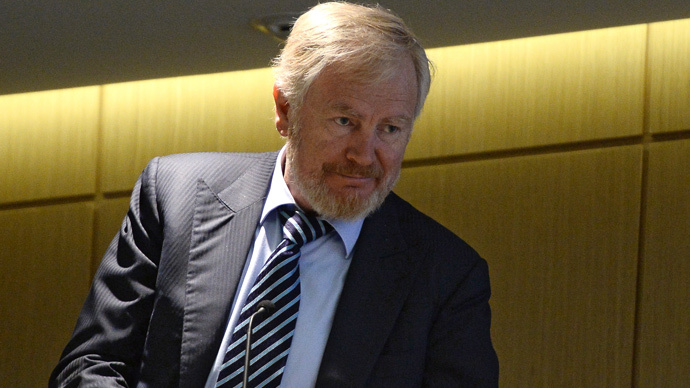Russia may soon sell its debt in yuan – Finance Ministry

Russia is considering issuing debt in Chinese yuan in the coming years, which will facilitate Russian corporate borrowers’ access to the Chinese market, Russia’s Deputy Finance Minister Sergei Storchak said.
"In general, study of the Chinese market's opportunities is currently underway," Storchak told journalists on Wednesday. The yuan bond issues could happen in the coming years, but only after a proper study, the official added.
READ MORE:Russia-China trading settlements in yuan increases 800%
The Russian Ministry of Finance has a lot of issues to explore, like how to organize Russia’s entrance into the Chinese market and its infrastructure, according to Storchak. It should also understand how to work with the agent banks and intermediaries, which could be potential investors. It is important to explore how to register the debt issues according to the requirements of the Chinese securities supervisor as well.
READ MORE: Russia’s biggest bank launches financing in Chinese yuan
Understanding the mechanism for the repatriation of currency earnings from the sale of securities is another important aspect, Storchak thinks. "As long as yuan is not freely convertible, there are certain nuances".
He also added that having the ability to access new markets in different jurisdictions is only for the better. Russia is satisfied with its own market, but understands that participating only in its own domestic market reduces opportunities for corporate participants and puts the market under unnecessary pressure, according to the Deputy Finance Minister.
Russia and China have been strengthening financial cooperation recently. Last year, the Russian and Chinese central banks agreed on a currency swap agreement to increase trade in domestic currencies and cut dependence on the US dollar for bilateral payments. In November, Sberbank, Russia’s largest, became the first bank in the country to issue credit guarantees denominated in Chinese yuan. Switching to mutual settlements in local currencies, which have already increased by more than 800 percent in 2014, should also help stimulate trade.
Trade between Russia and China reached $95.3 billion in 2014. Moscow and Beijing plan to boost trade turnover to $100 billion in 2015, and to $200 billion by 2020, the Chinese Ambassador to Russia Li Hui said in April.











